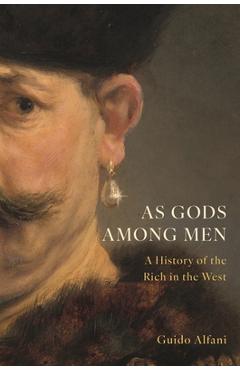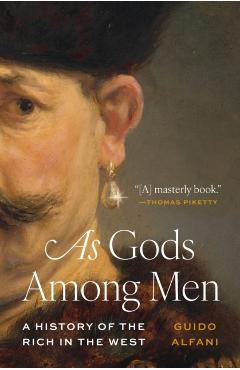As Gods Among Men: A History of the Rich in the West - Guido Alfani

Detalii As Gods Among Men: A
libris.ro
208.08 Lei
231.2 Lei
Business & Economics
Guido Alfani
As Gods Among Men: A - Disponibil la libris.ro
Pe YEO găsești As Gods Among Men: A de la Guido Alfani, în categoria Business & Economics.
Indiferent de nevoile tale, As Gods Among Men: A History of the Rich in the West - Guido Alfani din categoria Business & Economics îți poate aduce un echilibru perfect între calitate și preț, cu avantaje practice și moderne.
Preț: 208.08 Lei
Caracteristicile produsului As Gods Among Men: A
- Brand: Guido Alfani
- Categoria: Business & Economics
- Magazin: libris.ro
- Ultima actualizare: 05-06-2025 16:21:01
Comandă As Gods Among Men: A Online, Simplu și Rapid
Prin intermediul platformei YEO, poți comanda As Gods Among Men: A de la libris.ro rapid și în siguranță. Bucură-te de o experiență de cumpărături online optimizată și descoperă cele mai bune oferte actualizate constant.
Descriere magazin:
How the rich and the super-rich throughout Western history accumulated their wealth, behaved (or misbehaved) and helped (or didn\'t help) their communities in times of crisis The rich have always fascinated, sometimes in problematic ways. Medieval thinkers feared that the super-rich would act \'as gods among men\'; much more recently Thomas Piketty made wealth central to discussions of inequality. In this book, Guido Alfani offers a history of the rich and super-rich in the West, examining who they were, how they accumulated their wealth and what role they played in society. Covering the last thousand years, with frequent incursions into antiquity, and integrating recent research on economic inequality, Alfani finds--despite the different paths to wealth in different eras--fundamental continuities in the behaviour of the rich and public attitudes towards wealth across Western history. His account offers a novel perspective on current debates about wealth and income disparity. Alfani argues that the position of the rich and super-rich in Western society has always been intrinsically fragile; their very presence has inspired social unease. In the Middle Ages, an excessive accumulation of wealth was considered sinful; the rich were expected not to appear to be wealthy. Eventually, the rich were deemed useful when they used their wealth to help their communities in times of crisis. Yet in the twenty-first century, Alfani points out, the rich and the super-rich--their wealth largely preserved through the Great Recession and COVID-19--have been exceptionally reluctant to contribute to the common good in times of crisis, rejecting even such stopgap measures as temporary tax increases. History suggests that this is a troubling development--for the rich, and for everyone else.

Produse asemănătoare
Produse marca Guido Alfani

As Gods Among Men: A History of the Rich in the West - Guido Alfani
![]() libris.ro
libris.ro
Actualizat in 05/06/2025
208.08 Lei
